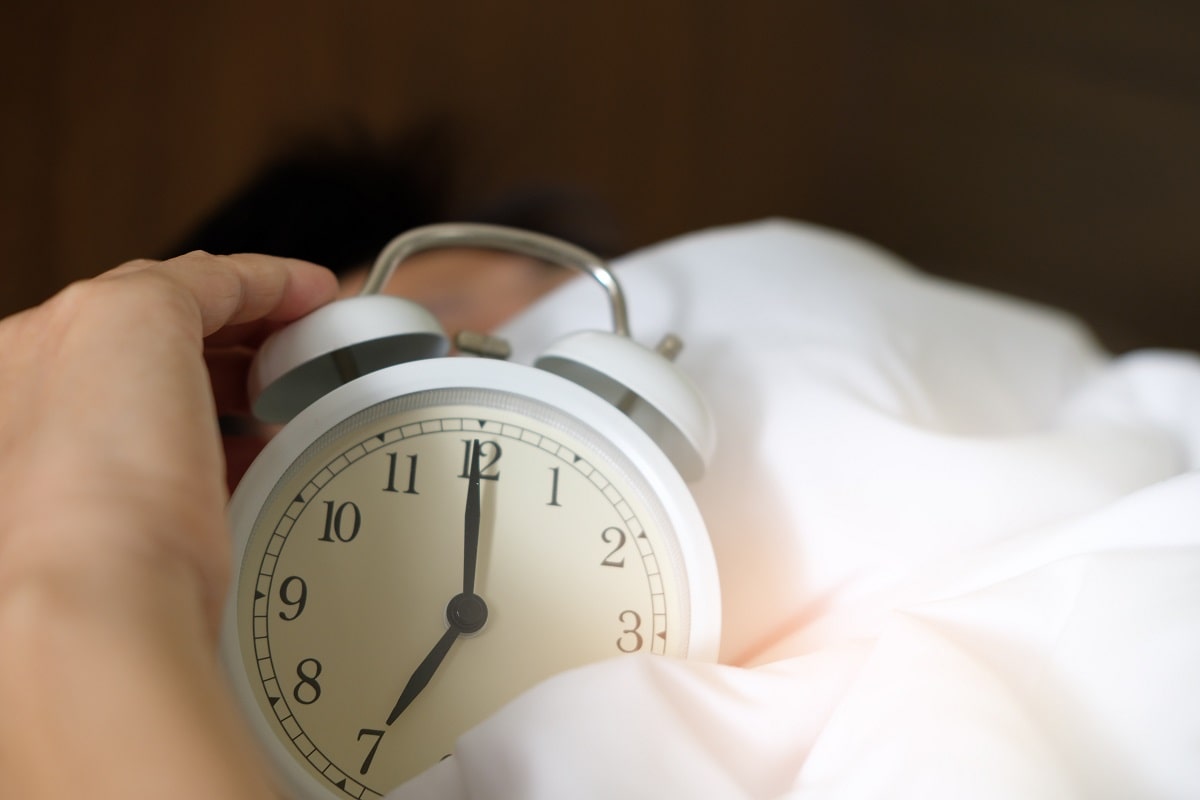You were tossing and turning all night and, now that your alarm is going off, you feel like you just got into bed. You’re left to rely on your lifeline, coffee, yet again. As you’re sipping (or chugging) your way through your morning, you check your fitness tracker only to have it tell you that you had another night of restless sleep. That’s it—you’ve had enough of these rough nights, and are ready to get down to the bottom of it. Here’s everything you should know about restless sleep, how you can work to fix it, and when it might be time to seek out professional help.
How Much Restless Sleep Is Normal?
We can all admit we’ve experienced nights filled with nothing but restless sleep, but some of us more so than others. How do we know how much restless sleep is normal? It’s common for the normal sleeper to experience anywhere between 10 to 30 periods of restlessness during a night of sleep. These periods are considered restless sleep when the body is not completely still during sleep. The occasional sleepless night is normal and nothing to stress about. Now, there are warning signs to know when your restless sleep has become more serious. If you start to experience sleepless nights three or more days a week or you can’t fall back asleep after waking up during the night, you may have an underlying health issue.
What Causes Restless Sleep?
Besides the obvious causes, such as coffee and sugar before bed, there are other causes of restless sleep you may not be aware of. Have you been overloaded at work, family drama, or just daily life? Stress can also play a factor in how well you are, or are not, sleeping. There are more serious conditions, including Rapid Eye Movement Sleep Behavior Disorder (RBD), Restless Leg Syndrome (RLS), and Obstructive Sleep Apnea (OSA).
• Rapid Eye Movement Sleep Behavior Disorder (RBD)
If your partner is constantly telling you that you sit up in bed, flail your arms, or even walk around the house while you’re asleep, you could have RBD. It’s important to see a sleep specialist if this sounds like you to get prescribed the correct medication and avoid a hazard.
• Restless Leg Syndrome (RLS)
RLS is described as an uncomfortable sensation or discomfort in the legs urging you to keep them moving, which may be the cause of your restless sleep. If you find yourself always moving your legs, getting up to walk around at night frequently, or kicking during your sleep, you may be showing signs of Restless Leg Syndrome.
• Obstructive Sleep Apnea (OSA)
Loud snoring, trouble breathing at night, frequent gasps throughout the night are some of the major signs of Obstructive Sleep Apnea, which can cause restless nights since you are unable to get into a deep sleep. You may also wake up with a headache or sore throat and feel drowsy throughout the day. If you think you may have OSA, we highly suggest seeing a sleep specialist to receive the treatment you need.
How to Fix Restless Sleep
Before making an appointment with your sleep specialist, try some of our top tips and recommendations to see if you can ward off those restless nights. Do you stay up until the early morning hours scrolling into the rabbit hole of social media? Sleep hygiene and atmosphere during sleep is one of the most important, and constantly overlooked, factors when getting a good night’s sleep. Put away those screens at least 30 minutes before bed, turn that thermostat down, and grab a cozy blanket to prepare for a fantastic night of beauty sleep.
It’s been said time and time again, and we will say it again for you–avoid caffeine and sugar right before bed if you want a good night’s sleep. What about your dinner meal? It is recommended to wait 2-3 hours after your last meal before hitting the hay to allow your body to breakdown your food. Other things to consider avoiding right before bed are alcohol and nicotine. Which would you prefer—that third glass of wine or waking up feeling rested ready to take on the day?
You can force your body into being tired by exercising. If you sit all day at work and then relax all evening in front of the TV, by the time you go to bed, your body might be begging you to get moving. Get those steps in by taking a walk after dinner, which will also help your food digest better as well.
Visit a Sleep Doctor in Jacksonville, FL
Restless sleep is common, and we’ve all experienced it a time or two before. If you’ve tried everything in the book, but nothing seems to be helping you sleep better at night, it’s time to seek out the professionals. At Jacksonville Sleep Center, we are a leader in providing solutions for sleep issues. We work with each patient to improve their quality of life through sleep based on their needs. To start waking up feeling refreshed, contact us for your appointment.






